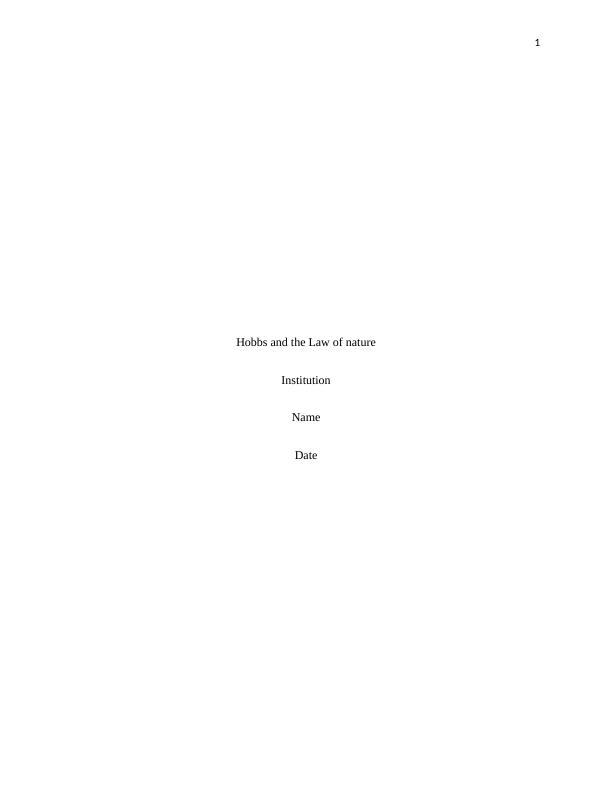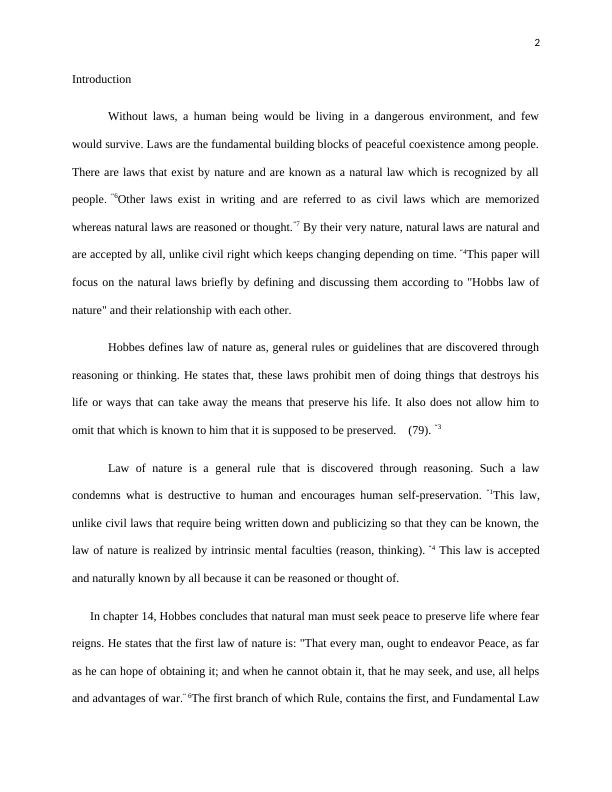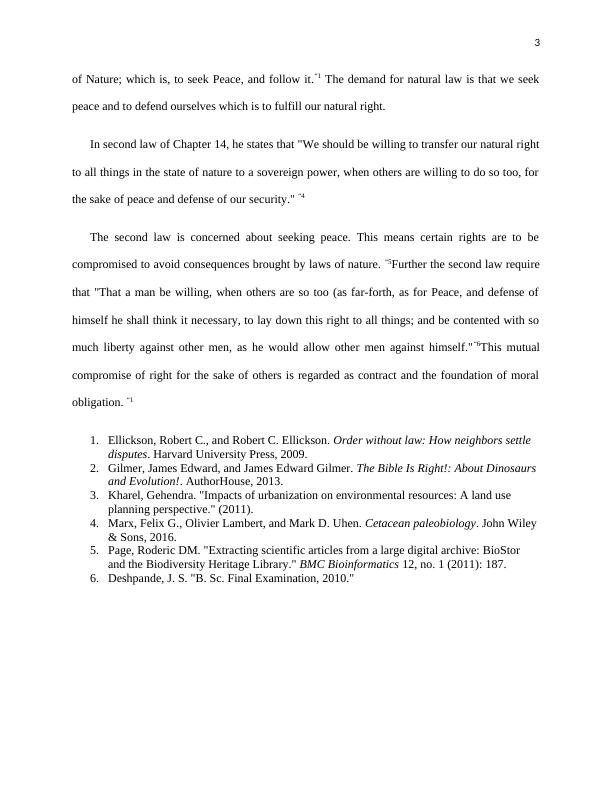Hobbs and the Law of Nature
6 Pages1326 Words83 Views
Added on 2023-06-11
About This Document
This article defines and discusses the natural laws according to Hobbs Law of Nature and their relationship with civil law. It explains how natural laws are discovered through reasoning and thinking and how they prohibit actions that can harm human life. The article also emphasizes the need for compromise to seek peace and secure our natural right.
Hobbs and the Law of Nature
Added on 2023-06-11
ShareRelated Documents
End of preview
Want to access all the pages? Upload your documents or become a member.
An Analysis of John Locke and Thomas Hobbes Assignment
|5
|1847
|229
What Would Hobbes Say? - Analysis of Hobbesian Principles in Dealing with Terrorism
|4
|796
|414
Primary Source Analysis
|4
|985
|265
Laws of Nature and Obligation
|12
|3913
|65
Primary Source Analysis of Thomas Hobbes' Leviathan
|6
|1451
|416
Assignment on Philosophy PDF
|4
|724
|62



